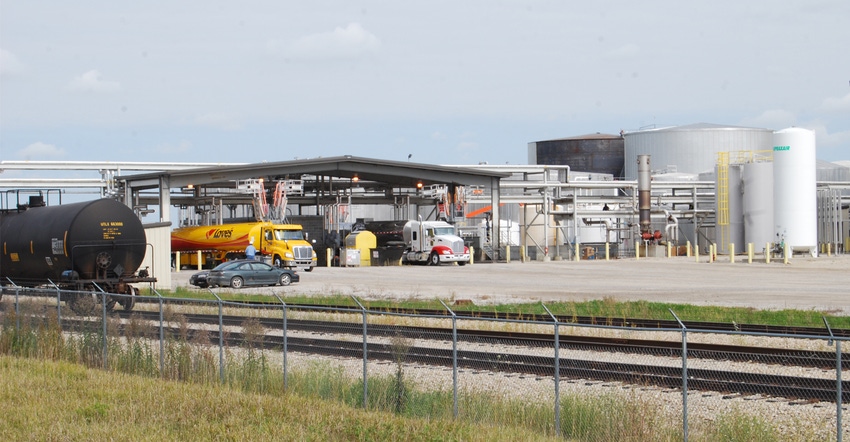
The U.S. Environmental Protection Agency Nov. 30 released new Renewable Fuel Standard volumes, as required by federal law. The new volumes for blending essentially hold flat the amount of biofuel required to be used to diversify the U.S. motor fuel supply.
The 2019 “biomass-based diesel” category is set at the same 2.1 billion-gallon level required in 2018. The “advanced biofuels” category, which biodiesel helps fill, is set at 4.29 billion gallons, a slight increase over 4.28 billion gallons.
Grant Kimberley, executive director of the Iowa Biodiesel Board, says, “We have always pushed for steady biodiesel growth under the Renewable Fuel Standard, fulfilling both the potential of the industry and the intent of the law. We have consistently met and exceeded the volume requirements set by EPA. We believe we will exceed expectations again, but these flat volumes send a weak signal to the market at a time when our plants could significantly increase production and expand capacity.”
Reason to restore biodiesel tax credit
Many biodiesel production plants in Iowa and beyond stand ready to make new investments in “boots-on-the-ground” and brick-and-mortar projects, Kimberley says. “This would create jobs and spur growth in agriculture and rural America.”
He adds, “The EPA’s RFS decision now brings a heightened urgency to extend the federal biodiesel tax credit, which would augment U.S. demand and could re-energize economic growth. It’s up to Congress to advance this good policy.”
The biodiesel industry “looks forward to working with President Trump and his administration in the coming year, making the case for why steady growth in the RFS is good policy for America and a strong driver for economic success,” says Kimberley. “We also want to thank Iowa’s entire political leadership, including Gov. Kim Reynolds, Sen. Joni Ernst and, of course, our decades-long champion, Sen. Chuck Grassley. Their tireless work to advance biodiesel policies that benefit Iowa and the nation have truly made a difference.”
Put biodiesel production capacity back to work
Ron Heck, a farmer from Perry in central Iowa is a National Biodiesel Board director and former president of the Iowa Soybean Association. He says, “The biodiesel industry has more production capacity than is being used. The new RFS biodiesel volumes, while not a step backward, won’t move the industry forward.” He adds, “The part that’s most upsetting to us is this puts a chill on biodiesel expansion. We can and should be producing more biodiesel in Iowa, but EPA habitually underestimates the demand for biodiesel and our ability to produce it.”
Iowa is already leading the nation in biodiesel production, “and we are willing to do more,” he says. “We have the supply of soybeans and biofuel production capacity here in Iowa. Iowa will just have to go ahead and exceed the RFS volume EPA has set for biodiesel, and we can do so by expanding our production. This is a fantastic fuel, and we can produce the soybeans.”
Urging Congress to extend the federal biodiesel tax credit, both Kimberley and Heck visited Capitol Hill last week in an effort to make that happen. “Everyone in Washington, D.C., is reluctant to make absolute promises,” says Heck. “But if I were betting today, I say our chances are 50-50 for an extension of the biodiesel tax credit.”
The Iowa Biodiesel Board is a nonpartisan state trade association representing the biodiesel industry.
About the Author(s)
You May Also Like




